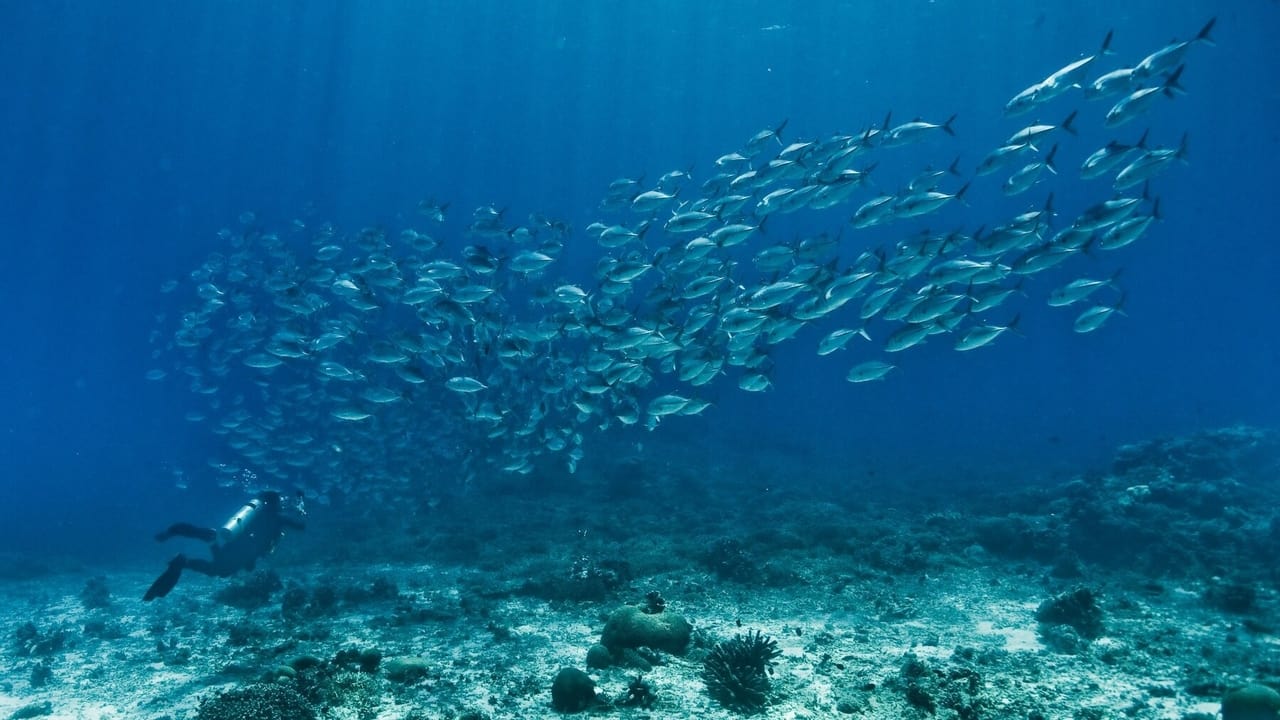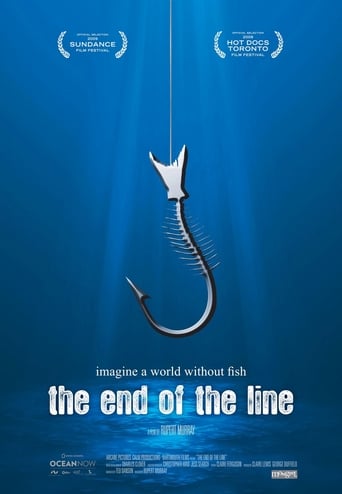

Strong and Moving!
... View MoreDid you people see the same film I saw?
... View MoreInstead, you get a movie that's enjoyable enough, but leaves you feeling like it could have been much, much more.
... View MoreThe film creates a perfect balance between action and depth of basic needs, in the midst of an infertile atmosphere.
... View MoreShown on Sundance in September 2011, an interesting look at the fishing industry that is over-fishing and will probably soon wipe out the available species currently in the oceans. Some great photography on an interesting subject, but it does suffer from VOLUMITIS... an illness which occurs in many indy/documentaries... the volume varies between VERY LOUD and barely audible, so one spends the entire film turning the volume up and down. Frustrating. Almost as annoying as watching the un-concerned countries continue over-fishing, even after the discussions of limits. Maybe we need the fishing-police, kind of like Whale Wars, where a group monitors and distracts the culprits caught in the act. The cast goes all over the world, studying various countries habits. They DO show specific charts on what they see happening to various species of fish, so its not all here-say and opinions. They also talk about other impacts to the beaches, the algae, and how it affects the food groups above and below the overfished groups. A good watch, but don't lose the remote, since you'll need to keep changing the volume. Also, the narrator sounds JUST like Ted Danson, but as of today, he is not mentioned in the credits here on IMDb... but there he is, listed on Sundance Channel.com
... View MoreThe preservation of environment has to do with only one thing: preservation of environment. For the sake of the most vicious predator (human) and his / her children. Human is most vicious predator because s/he is the only animal that kills for sports (pleasure). Same applies for preservation of any species: if human cannot control the environment and causes species to go extinct - then human must begin to learn now to preserve environment and animals, because human population is growing exponentially (without bounds) and nature (trees) with its animals are DISAPPEARING: there will be no place left for forest, nature, animals. No place left for Healthy Environment. CONSUMPTION is not "cool" anymore. Stop consuming and live in harmony with environment.
... View MoreWho's the scariest predator in all the world's oceans? Not the shark or killer whale it's -- you guessed it -- (fisher)Man.This documentary shows how high-tech sonar equipment and nets the size of seven jumbo jets are depleting the main source of protein for 60% of the planet's people. Just as cod was wiped out off of Newfoundland, leaving tens of thousands unemployed, choice species of fish could disappear forever, leaving an unsavory array of "cow face" rays and worms in their wake. And fish farming isn't the answer because farm fish eat chopped up anchovies and other "fish meal." The film's nearly all-male talking heads sound a terrifying warning that must be heeded. But since many countries are involved and enforcement of regulations is lax it seems like an insurmountable problem. The film does hint at what regular Joes can do to help I.e., refrain from ordering endangered species like marlin at hoity-toity boutique eateries like Nobu in NYC.
... View MoreThis won't be the most enjoyable film you ever see. It's not meant to be. The picture it paints is bleak, but as an educational documentary it is a 'must see'. It explains in an engaging way the state of our oceans. Fish stocks in general are down by 90%. By approx 2050 there will be NO FISH in the sea. If enough people saw this film we would stand a chance of managing the planet's fish stocks. The visuals are poignant and vivid. It's not for the squeamish, but the sometimes gruesome fishing shots bring home just how massive the global fishing fleet is and how small a chance fish stand of evading our nets. It will influence the way you look at your next fish dinner forever. The problem with fishing is that it is done under or out to the sea. The trawlers are far away out of sight. The damage is hidden by trillions of gallons of water this documentary exposes the fishes plight, with an ever increasing global population we need to act on this now. The most important film documentary since an 'Inconvenient Truth'
... View More